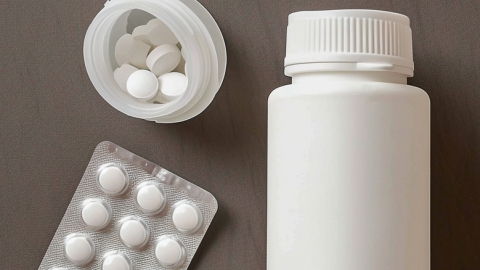Why does the face become very yellow when taking antidepressants?
Yellowing of the face after taking antidepressants may be caused by drug-related pigment deposition, inadequate dietary nutrition, metabolic fluctuations, anemia, hepatitis, and other factors. This condition can be improved through symptom observation, dietary adjustments, and medical treatment. If facial yellowing worsens or is accompanied by fatigue and poor appetite, prompt medical attention is necessary.
1. Drug-induced pigment deposition: Some antidepressants may affect skin pigment metabolism, leading to mild pigment accumulation that manifests as yellowish facial skin. It is recommended to take medication as prescribed without adjusting the dosage independently. Additionally, practice sun protection to prevent further pigmentation.
2. Inadequate nutritional intake: Reduced appetite during medication may lead to insufficient intake of nutrients such as vitamin C and iron, affecting skin brightness. Adjust your diet by consuming more nutrient-rich foods like oranges, spinach, and lean meat to ensure balanced nutrition.

3. Metabolic fluctuations: Medications may mildly affect liver metabolism, slowing toxin elimination and indirectly causing facial yellowing. Maintain a regular sleep schedule, avoid staying up late, and engage in light activities such as walking to support metabolism and reduce bodily stress.
4. Anemia: Impaired digestion and absorption due to medication may result in insufficient iron intake or excessive loss, leading to anemia. This often presents as pale, yellowish facial mucosa accompanied by dizziness and shortness of breath. Under medical guidance, patients may use medications such as ferrous succinate tablets, ferrous fumarate suspension, and vitamin B12 tablets to relieve symptoms.
5. Hepatitis: Liver inflammation caused by viral infection or drug-induced irritation can damage liver cells and disrupt bilirubin metabolism, resulting in facial yellowing along with fatigue and darkened urine. Under medical supervision, medications such as compound glycyrrhizin tablets, silybin capsules, and reduced glutathione tablets may be used to improve symptoms.
Maintain a regular sleep schedule and avoid staying up late. Eat a light yet nutritious diet, consume adequate amounts of vitamin-rich fruits and vegetables, maintain proper skin hydration and sun protection, and keep a positive mood to support overall health improvement.




